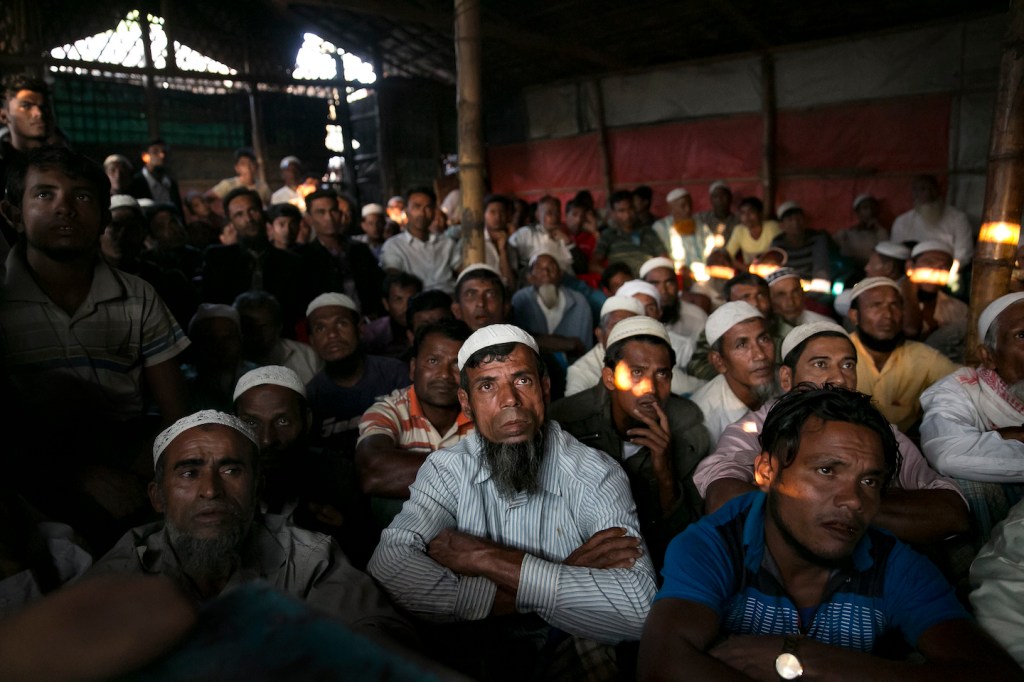The U.S. has formally declared that Myanmar’s acts of violence and oppression against the country’s Rohingya population—which have included mass killings, gang rapes and arson of entire villages—amount to genocide and crimes against humanity.
It’s only the eighth time in history that the U.S. has officially made such a designation.
Videos by VICE
“The United States has concluded that genocide has been committed seven times. Today marks the eighth. I have determined that members of the Burmese military committed genocide and crimes against humanity,” said U.S. Secretary of State Antony Blinken during a speech at the U.S. Holocaust Memorial Museum in Washington, DC, on Monday.
“The attack against Rohingya was widespread and systematic, which was crucial for reaching a determination of crimes against humanity. The evidence also points to a clear intent behind these mass atrocities, the intent to destroy [the] Rohingya in whole or in part.”
Myanmar’s armed forces launched a brutal military crackdown against the Rohingya in August 2017, following decades of persecution and human rights abuses, and ultimately forced more than 730,000 refugees to flee the country—the largest human exodus in Asia since the Vietnam War.
Many of those refugees have since accused the Burmese military of a range of human rights abuses and crimes against humanity. Of the 1,000 Rohingya refugees that U.S. investigators spoke to prior to making their designation, Blinken said three quarters “personally witnessed members of the military kill someone,” more than half witnessed acts of sexual violence and one in five witnessed a mass casualty event, defined as the killing or injury of more than 100 people in a single incident.
Such reports are not new. Governments and human rights groups have condemned the Burmese military’s ongoing campaign of violence for years, following widespread accounts of extrajudicial killings, rapes, infanticides, and the wanton burning of thousands of people’s homes.
UN human rights chief Zeid Ra‘ad al-Hussein labeled the atrocities as a “textbook example of ethnic cleansing” in 2017, and former U.S. secretary of state Mike Pompeo described the situation the same way the following year.
But this is the first time U.S. officials have opted to designate the events in Myanmar as “genocide”—a word that carries a number of possible repercussions on the world stage, including limits on aid and additional sanctions against the military. Blinken said on Monday that the U.S. would be contributing almost $1 million in additional funding to the Genocide Convention for Myanmar, established by the UN Human Rights Council in 2018, and would provide information to support an ongoing genocide trial against the Myanmar military at the International Court of Justice.
The last genocide designation by the U.S. was in April 2021, when President Joe Biden recognized the 1915 mass killing and deportation of an estimated one million Armenians in Turkey as such—a move that Turkey’s government “entirely reject[ed]” and denounced as a “major mistake.”
Advocates and human rights groups hope the U.S. pronouncement will bolster efforts to hold Myanmar’s junta, which toppled the country’s democratically elected government last year in a military coup, accountable. Some, however, have suggested that it doesn’t go far enough.
“By formally declaring a genocide took place against the Rohingya, the U.S. is firmly acknowledging the scope and horror of the junta’s violence,” said Kyaw Win, executive director of the Burma Human Rights Network, according to The Guardian. “This declaration must be followed by further action. A military that commits genocide and launches a coup to overthrow a democratically elected government has no place in the civilised world.”
John Sifton, Asia advocacy director at Human Rights Watch, expressed a similar view.
“The U.S. government should couple its condemnations of Myanmar’s military with action,” Sifton said in a statement. “For too long, the U.S. and other countries have allowed Myanmar’s generals to commit atrocities with few real consequences.”
Follow Gavin Butler on Twitter.







